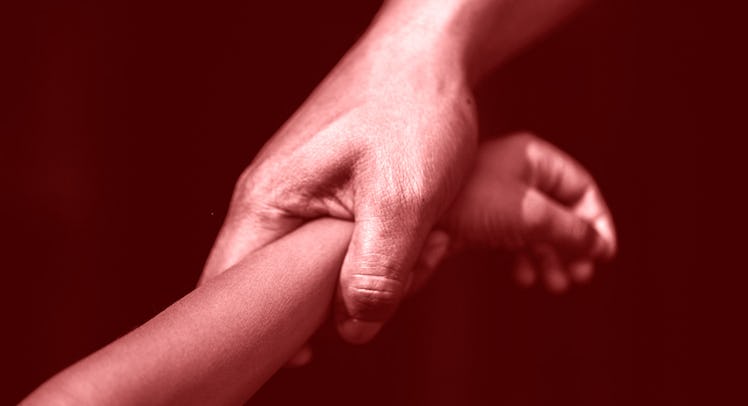Where Is Corporal Punishment Still Legal?
Your hometown is probably on the list.

Corporal punishment, or physical punishment, is something the UN Committee on the Rights of the Child strongly stands against as an “invariably degrading” practice. The UN goes on to define corporal punishment as any punishment in which physical force is used and intended to cause some degree of pain or discomfort, however slight.
At least 51 countries have gotten the message. Germany, Israel, Norway, and 48 others have outright banned corporal punishment. “Countries are increasingly seeing corporal punishment as outdated and ineffective,” says Amy McCready, Founder of PositiveParentingSolutions.com and author of If I Have to Tell You One More Time, “and more positive change will likely follow as more countries follow the trend.”
RELATED: When Is It Ok To Spank My Child?
Whether it was a spanking or something more harsh, corporal punishment leaves it marks on kids. According to the American Academy of Pediatrics and many other authorities on the matter, corporal punishment causes much more harm than good. “It can lead to increased aggression in children and adults,” says McCready, “destroy the parent-child relationship, and cause physical harm. Furthermore, it’s not very effective and can’t be a long-term strategy, because most parents would simply be unable to use corporal punishment on a teen who can fight back or get away.”
A world map showing the countries that have abolished corporal punishment in all cases.
Despite the evidence against the practice, it is entirely legal in the home in all 50 states in America. According to NBC, statues on corporal punishment vary from state to state, but none of them outright outlaw it. “Courts generally see spanking as a parent’s right, and uphold the legislation that allows physical punishments,” says McCready.
Now wonder spanking remains popular. According to a 2013 Harris poll, 81 percent of American parents say that spanking a child is sometimes appropriate, and two-thirds of parents report that they have spanked their children in the past.
ALSO: The Biggest Lies Parents Tell Themselves About Discipline
The rules surrounding schools are somewhat less permissive: 31 states have outlawed corporal punishment in schools and in most states where it’s banned, it’s banned outright. For example, the New York State legislature banned corporal punishment in 1985 after pressure from the Parent-Teacher Association and the New York Civil Liberties Union. The statute, typical of states that have banned corporal punishment, reads, “No teacher, administrator, officer, employee or agent of a school district in this state, or a board of cooperative educational services in this state, shall use corporal punishment against a pupil.”
The laws in permissive states vary quite a bit. In Arkansas, for example, it’s legal in only specifically authorized districts. In Texas, schools in Three Rivers Schools District can now be at the mercy of a wooden paddle. (The parents must give consent.)
“The mindset we often see is the classic, ‘I was spanked as a kid and I turned out fine, so why should things be any different for my child?’” says McCready. “The problem with this thinking is that it assumes nothing has changed — when in fact, America is a much different country than it was 100 years ago — or even 40. Society is much less authoritarian than it used to be. We’re more respectful and democratic, and that’s a good thing.”
In fact, hitting your child can start a vicious cycle. “The research shows that children who are disciplined or punished with physical violence are more likely to use physical violence with their own children,” says,’ says Dr. Rosina McAlpine, creator of the Win Win Parenting program. In other words? If we keep hitting our children, truly, nothing will change.
Read more of Fatherly’s stories on discipline, punishment, and behavior.
This article was originally published on